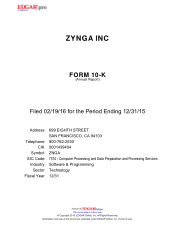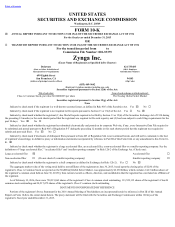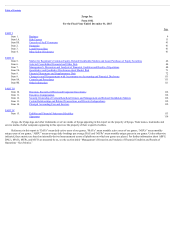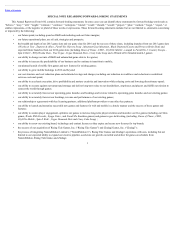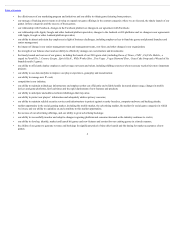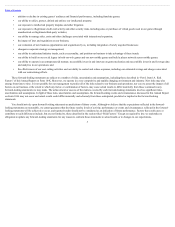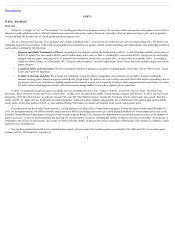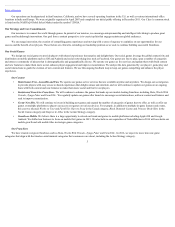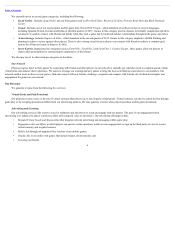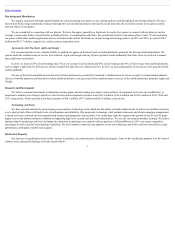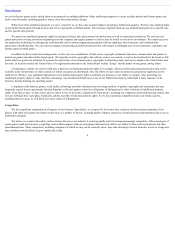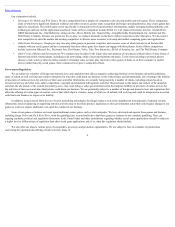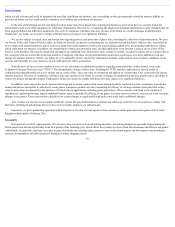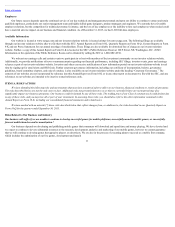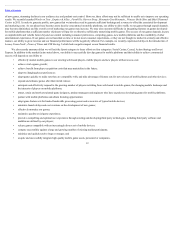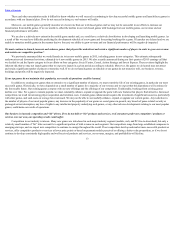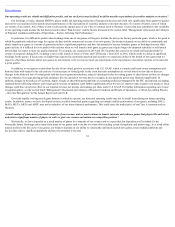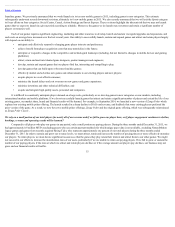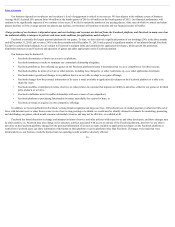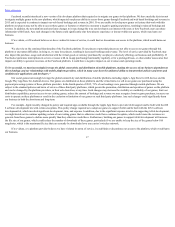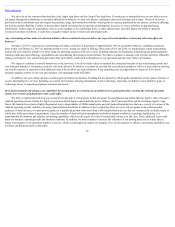Zynga 2015 Annual Report Download - page 11
Download and view the complete annual report
Please find page 11 of the 2015 Zynga annual report below. You can navigate through the pages in the report by either clicking on the pages listed below, or by using the keyword search tool below to find specific information within the annual report.
Table of Contents
use to develop our games and to enable them to run properly on multiple platforms. Other intellectual property we create includes product and feature names and
audio-visual elements, including graphics, music, story lines and interface design.
While most of the intellectual property we use is created by us, we have also acquired rights to proprietary intellectual property. We have also obtained rights
to use intellectual property through licenses and service agreements with third parties. These licenses typically limit our use of intellectual property to specific uses
and for specific time periods.
We protect our intellectual property rights by relying on federal, state and common law protections, as well as contractual restrictions. We actively seek
patent protection covering inventions originating from the company and acquire patents we believe may be useful or relevant to our business. We control access to
our proprietary technology by entering into confidentiality and invention assignment agreements with our employees and contractors, and confidentiality
agreements with third parties. We also actively engage in monitoring and enforcement activities with respect to infringing uses of our trademarks, copyrights and
domain names by third parties.
In addition to these contractual arrangements, we also rely on a combination of trade secret, copyright, trademark, trade dress, domain name and patents to
protect our games and other intellectual property. We typically own the copyright to the software code to our content, as well as the trademark for the brand or title
under which our games are marketed. We pursue the registration of our domain names, copyrights, trademarks patents, and service marks in the United States and,
for some, in locations outside the United States. Our registered trademarks in the United States include “Zynga” and the names of our games, among others.
Circumstances outside our control could pose a threat to our intellectual property rights. For example, effective intellectual property protection may not be
available in the United States or other countries in which our games are distributed. Also, the efforts we have taken to protect our proprietary rights may not be
sufficient or effective. Any significant impairment of our intellectual property rights could harm our business or our ability to compete. Also, protecting our
intellectual property rights is costly and time-consuming. Any unauthorized disclosure or use of our intellectual property could make it more expensive to do
business, thereby harming our operating results.
Companies in the Internet, games, social media, technology and other industries may own large numbers of patents, copyrights and trademarks and may
frequently request license agreements, threaten litigation or file suit against us based on allegations of infringement or other violations of intellectual property
rights. From time to time, we have faced, and we expect to face in the future, allegations by third parties, including our competitors and non-practicing entities, that
we have infringed their copyrights, trademarks, patents and other intellectual property rights. As we face increasing competition and as our business grows,
including into new areas, we will likely face more claims of infringement.
Competition
We face significant competition in all aspects of our business. Specifically, we compete for the leisure time, attention and discretionary spending of our
players with other social game developers on the basis of a number of factors, including quality of player experience, brand awareness and reputation and access to
distribution channels.
We believe we compete favorably on these factors. However, our industry is evolving rapidly and is becoming increasingly competitive. Other developers of
social games could develop more compelling content that competes with our social games and adversely affects our ability to attract and retain players and their
entertainment time. These competitors, including companies of which we may not be currently aware, may take advantage of social networks, access to a large user
base and their network effects to grow rapidly and virally.
8

